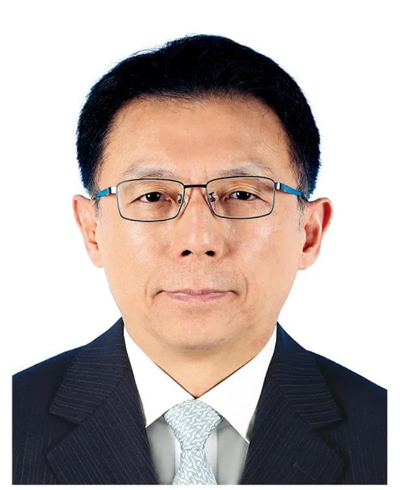Zhou Shuchun: Understanding the logic of China's worldview for a new era

Zhou Shuhun is a member of the Standing Committee and the Committee on Foreign Affairs of the National Committee of the Chinese People's Political Consultative Conference. [Photo/chinadaily.com.cn]
As profound changes unseen in a century take the world into a new period of instability and transformation, China's proposal on building a community with a shared future for mankind is proving all the more important for the well-being of the world.
President Xi Jinping has observed on international occasions that changes of the world, of the times and of history are unfolding in ways like never before, and posing challenges that must be taken seriously by humanity.
Countries need to follow the trend of the times featuring peace, development and win-win cooperation, move in the right direction of building a community with a shared future for mankind, and rise to the challenges and build a bright future through cooperation, he stressed.
As a fundamental worldview of China for a new era, the notion of building a community with a shared future for mankind proposed by Xi represents a theory of paramount importance for contemporary international politics, a theory that conforms to the trend of the times and heralds the direction for solving a range of problems facing the world today.
Any theory concerning politics or society has to be "historical", for it is in the light of the development of state of human society under certain historical conditions that a theory, from the historical perspectives of international relations, for example, comes into being. Therefore, a theory has its own epochal character, and different theories fit different epochs.
Although the establishment of the Westphalia System signified an important change in international politics and ushered in an era of human society when countries started to respect each other's right to live, "survival of the fittest" was the universal law for centuries, when "the weak would undoubtedly fall victim to the strong". In the belief of traditional realism, nations had to magnify their power to the greatest extent and the battle for power and profit between nations would become a zero-sum game.
Over the recent centuries, and decades in particular, human society has stepped into an epoch of mutual dependence, when all nations have to share weal and woe to an extent like never before. Globalization has been changing the mode of development and modifying the international political and economic balances, challenging the traditional international political ideas.
The world as a community is increasingly characterized by association and inter-dependence, when losses and gains are shared by all. However, the mentality of some groups of people has not kept up with changes of the times, hindering the international community from the construction of a new world in a new age.
"Faced with a world crackling with the dynamics of change in an age full of ups and downs, we ought to keep abreast of the times; that is, we cannot, with our minds stuck in the past, only have our bodies march into the 21st century," said Xi eight years ago, when his vision of building a community with a shared future for mankind began to take shape.
Whether mankind, at different planes of development and with various cultural traditions and religious beliefs, can as well work together towards a better future depends on whether a new rationale can be established at large to embody common humanity.
Back in the 1970s, British historian Arnold Toynbee said that "only through world unification can the mass suicide of humanity be avoided", and the Chinese culture reflects a widespread love through which human beings save themselves.
When President Xi visited the headquarters of the United Nations Educational, Scientific and Cultural Organization (UNESCO) in March 2014, he quoted the inscription on the wall at the entrance to the UNESCO main building, which says: "Since wars begin in the minds of men, it is in the minds of men that the defenses of peace must be constructed".
"As long as the idea of peace can strike deep roots and the sail of peace can be hoisted in the hearts and minds of people all over the world, a strong defense will be constructed to prevent and stop war," he went on. "Spread the seeds of the idea of peace far and wide and they will sprout, take root and grow in the hearts and minds of the world's peoples, and provide the planet we share with more and more forests of peace."
"Without world ethics there can be no new world order," said philosopher of ethics Hans Kung. "Civilization and culture can spread, and so can peace and development," President Xi expressed his conviction in a similar pattern of thinking. Though "human history has far too often been haunted by the spectre of war", we will "let the sunlight of peace drive away the shadow of war," and "enable the whole of mankind to embark on the path of peaceful development and mutually beneficial cooperation."
The idea of building a community with a shared future for mankind, which reflects a relatively positive judgment of the world trend and an awareness of the development of humanity, is a generalization of where civilization is headed. Such a vision will serve to give birth to new world culture in place of the traditional paradigm, or the law of the jungle.
That is probably why the concept of "a community of a shared future for humankind" has been included in relevant resolutions and documents of the United Nations in recent years.
(The author is a member of the Standing Committee and the Committee on Foreign Affairs of the National Committee of the Chinese People's Political Consultative Conference. The article is translated from Chinese to English by en.cppcc.gov.cn.)
Copyright © 2025 The National Committee of the Chinese People's Political Consultative Conference.
All rights reserved. Presented by China Daily.
京ICP备08100501号-1

